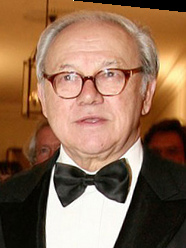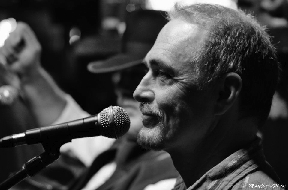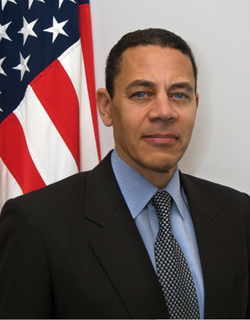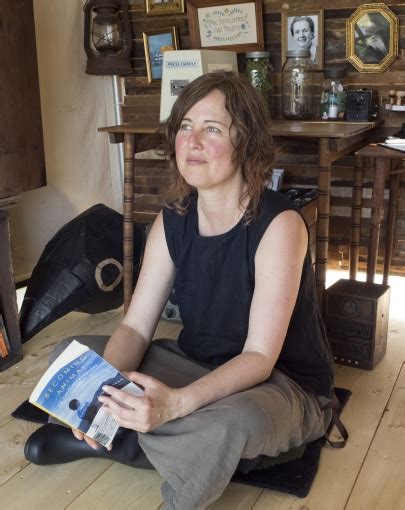Top 520 Virtual Quotes & Sayings - Page 8
Explore popular Virtual quotes.
Last updated on November 8, 2024.
Loyalty is dead, the experts proclaim, and the statistics seem to bear them out. On average, U.S. corporations now lose half their customers in five years, half their employees in four, and half their investors in less than one. We seem to face a future in which the only business relationships will be opportunistic transactions between virtual strangers.
One thing that I notice that is changing, you don't see kids on Sunday. Most of them are home. The kids are having much more virtual childhoods instead of childhoods. They don't play ball or hang out with the wrong people or get in fistfights, all the things that once made childhood. I don't know how it's going to turn out.
I believe that the totemic image for the future is the octopus. This is because the squids and octopi have perfected a form of communication that is both psychedelic and telepathic; a model for the human communications of the future. In the not-too-distant future men and women may shed the monkey body to become virtual octopi swimming in a silicon sea.
The early entrants into the world of A.R., as with its cousin virtual reality, were disappointing: the phones were too weak, the networks were too slow, and the applications were too nerdy. But now the technological pieces are in place, and a whole generation - much of which is on Snapchat - has come to consider the camera almost a third arm.
Remember the movie 'The Matrix,' where virtual information popped up to help inform physical day-to-day reality? Such things won't always be the stuff of Hollywood. If the Internet is accessible via contact lenses, biographies will appear next to the faces of the people we talk to, and we will see subtitles if they speak a foreign language.
Let's stick to the practical and the concrete: Would you like it if people lived in a virtual world? If machines were smarter than people? If, in the future, people, animals and plants were products of technology? If you don't like these ideas, then for you the computer and biological sciences clearly are dangerous.
As it becomes more and more difficult to get land, so will the virtual enslavement of the laboring-classe s go on. As the value of land rises, more and more of the earnings of labor will be demanded for the use of land, until finally nothing is left to laborers but the wages of slavery -- a bare living.
I've read all the books, I've watched all the films and now, thanks to the glory of home gaming, I've even kind of experienced it: I've landed on the beaches of Normandy, I have successfully held Pegasus Bridge and I've disabled German tanks with stolen Panzerfausts. I have fought in Italy, France and North Africa and if I had a Euro for every virtual life I've lost I'd be able to build a replica of Hitler's bunker in my back garden.
Virtual reality is a truly immersive medium and the level of graphics, already quite strong, will only continue to get better and better. You really feel like you are someplace else...and what you see, what you experience, it impacts your brain. So there are major implications here, to societal structure, to democracy to the way in which we interact with each other. To the nature of love, to the nature of sexuality.
When you see what is happening with the social network, with Facebook, Twitter and co it is becoming obvious that the reputation of ourselves is becoming more and more important everyday. Image is becoming too much for me, and we are living in a virtual world and sometimes it is very easy to make mistakes. It is more difficult to take responsibility for our mistakes.
The best simulator for spacewalking is underwater - it allows full visuals and body movement in 3D. Virtual reality is good, too, and has some advantages, like full Station simulation, not just part. Like all simulators, they have parts that are wrong and misleading: an important thing to remember when preparing for reality.
The real world just doesn’t offer up as easily the carefully designed pleasures, the thrilling challenges, and the powerful social bonding afforded by virtual environments. Reality doesn’t motivate us as effectively. Reality isn’t engineered to maximize our potential. Reality wasn’t designed from the bottom up to make us happy.
Tragedy dramatizes human life as potentiality and fulfillment. Its virtual future, or Destiny, is therefore quite different from that created in comedy. Comic Destiny is Fortune - what the world will bring, and the man will take or miss, encounter or escape; tragic Destiny is what the man brings, and the world will demand of him. That is his Fate.
I think the large part of the function of the Internet is it is archival. It's unreliable to the extent that word on the street is unreliable. It's no more unreliable than that. You can find the truth on the street if you work at it. I don't think of the Internet or the virtual as being inherently inferior to the so-called real.
Bitcoin has been described as a decentralized, peer-to-peer virtual currency that is used like money - it can be exchanged for traditional currencies such as the U.S. dollar or used to purchase goods or services, usually online. Unlike traditional currencies, Bitcoin operates without central authority or banks and is not backed by any government.
There's people who feel that, Well, if I could profit off of sellin' sex to an eleven-year-old kid that comes through some kind of virtual portal, then I'm not really doin' it in actuality. I'm just kind of co-signing or fostering it, 'cause it can't be attached to me. I'm like, Yes it can, 'cause people are livin' through their avatar.
The Sanders campaign, however, broke dramatically with over a century of U.S. political history. Extensive political science research, notably the work of Thomas Ferguson, has shown convincingly that elections are pretty much bought. For example, campaign spending alone is a remarkably good predictor of electoral success, and support of corporate power and private wealth is a virtual prerequisite even for participation in the political arena.
The ghost caliphate will be a virtual organization; it'll be decentralised, with no leadership, and it will just encourage people to keep acting now that the caliphate's gone, that individuals should go do self-starting jihad. Get a gun, get an improvised weapon, take your car, and carry out the jihad.
The healing power of music is vast. Music therapy is in its infancy in Western psychology. If we knew more, we'd be able to do amazing things, and maybe even make permanent changes in the brain's mysterious workings. With a simple song and four chords, you might be able to do something useful, even life-changing. With all the songs you know, you might be a virtual, veritable medicine chest for the right person.
The film is therefore a form of science fiction, in which humans, beasts and machines are on the verge of extinction - 'sacred motors' linked together by a common fate and solidarity, slaves to an increasingly virtual world. A world from which visible machines, real experiences and actions are gradually disappearing.
You need virtual reality to understand high level science or high level math. It's very helpful to explain third and fourth dimensional things that people are constantly addressing in quantum physics. But, as soon as you're creating an avatar, and you can live and you can start to feel sensations on VR, that has gone too far.
When MUDs appeared, that was an entirely novel experience, and often an addictive one. Long before Twitter or Snapchat, MUDs inspired the moral panic of the moment: a 1993 'Wired' article titled 'The Dragon Ate My Homework' described university students losing themselves in these virtual worlds. Keep in mind: they were just words on a screen.
Cinema is a technologically mediated dreamspace, a way to access, a portal to the numinous that unfolded in the fourth dimension, so cinema became sort of a waking dream where we can travel in space and time, where we can travel in mind. This became more than virtual reality, this became a real virtuality.
We believe that we can use interactivity to create meaningful games. Games with emotions and virtual actors telling you something. Resonating with you as a human being, giving you food for thought. We don't need to deliver messages or whatever, just need to create a moment in time that will leave an imprint in your mind.
While we should not hesitate to deploy encryption to protect ourselves from cybercriminals, this should not be done in a way that eviscerates society's ability to defend itself against other types of criminal threats. In other words, making our virtual world more secure should not come at the expense of making us more vulnerable in the real world.
I wanted there to be something to fill the space and to catch the listener's ear, but I didn't want there to be any 'Virtual Self' songs that had a clearly defined vocal with lyrics and top line. If you do hear any lyrics, it's just your brain filling in the gap, because those moments are just various syllables combined.
I think the adoption rate with respect to social media and how companies leverage that varies by the company. Cisco is probably a leader in the space. A lot of times, we actually use virtual ways to communicate our brand and do some of our advertising, first on the social space, then we do on physical advertising.
A lot of [George Saunders] early stories now feel prophetic. Take the recent election [of Donald Trump]. Historians in 100 years might write about it as being the first internet election, in which what happened was actually an expression in the real world of a virtual reality. And you've been writing about that subject for a while.
Steven Spielberg making a Ready Player One movie is going to change the course of human history as pertains to how quickly virtual reality is adopted. He's going to shows the whole world the potential of VR, which is one of the reasons I think he's doing it. Once you have to compose for 360 degrees, and a movie is different every time you watch it depending on where you choose to look, it's like the dawn of a new era.
As more and more people are automated out of the economy through robotics and self-driving cars and other technologies, there will be a way to create value for other human beings online. There will be a virtual economy for exchanging value, goods and services, entertainment experiences, and all that.
It's an amazing time to be an entrepreneur because not only is the stuff getting more capable and powerful, but it's becoming more reliable and the costs are coming down dramatically. So you can go out as an entrepreneur and start a company on a credit card and go to AWS and a few other services and be pretty virtual and, who knows, you may be the next Steve Jobs.
VR could, in theory, connect sports fans in different geographical locations so they could watch a game together. Instead of a group text or Twitter stream of commentary playing out across time zones when a team is playing, our avatars could inhabit virtual stands, side by side with the rest of our digital tribe.
The first commandment for every good explorer is that an expedition has two points: the point of departure and the point of arrival. If your intention is to make the second theoretical point coincide with the actual point of arrival, don't think about the means -- because the journey is a virtual space that finishes when it finishes, and there are as many means as there are different ways of 'finishing.' That is to say, the means are endless.
In the past things were either in your head (subjective, imaginary, fantasy) or else they were part of the outside world - cold, hard, concrete materialistic reality. If you want to look at it in terms of poetry, there was surrealism and objectivism. Now there's the veil of the virtual in between. The old opposition between inner and outer doesn't quite capture it, especially as it contains elements of both. It's real but not concrete.
Beyond ensuring that people everywhere have access to mental health, virtual digital assistants can act as learning companions, using their insight into what motivates and inspires you, to help you study and learn. In this way, AI could be used to level the playing field in education and help narrow socio-economic gaps around the world.
I have a feeling Virtual Reality will further expose the conceit that 'reality' is a fact. It will provide another reminder of the seamless continuity between the world outside and the world within, delivering another major hit to the old fraud of objectivity. 'Real,' as Kevin Kelly put it, 'is going to be one of the most relative words we'll have.'
I'd guess blockchains will be the full-blown backbone of virtual worlds - the system for currency, assets, identity, even governance - before doing the same in the 'real world.' Which is where I think we will end up in the real world eventually; it's just a matter of which goes first and how long until it's the case for both.
The aliens on this planet are also attempting to clone or replicate the human form artificially. Their original form, being humanoid, cannot pass the field that was established around the Earth. But if they can clone or cybernetically change their forms, it may help their designs. This is why virtual reality, cybernetics, cloning, and nanotechnology are in vogue today.
Today, the best way to communicate with someone is still face-to-face. Virtual reality has the potential to change that, to make it where VR communication is as good or better than face-to-face communications, because not only do you get all the same human cues as real-world communication, you basically suspend the laws of physics, you can do whatever you want, you can be wherever you want.
Today in America many people are living in a virtual world. They enter it through an internet access device and they navigate freely around it, and those people who learn how to navigate better in that space are finding that they have better access to information about jobs and education and all the good things that our society produces.
Search is now more than a web destination and a few words plugged into a box. Search is a mode, a method of interaction with the physical and virtual worlds. What is Siri but search? What are apps like Yelp or Foursquare, but structured search machines? Search has become embedded into everything and has reached well beyond its web-based roots.
The most dramatic case is that of the Central Americans. Why are people fleeing Central America? It's because of the atrocities the U.S. committed there. Take Boston, where there's a fairly large Mayan population. These people are fleeing from the highlands of Guatemala, where there was virtual genocide in the early 1980s backed by Ronald Reagan. The region was devastated, and people are still fleeing to this day, yet they're sent back.
A lot of people will say, "what's Facebook's business model?" I always find that a kind of funny question. Our business model is out there, which is: we monetize largely through advertising and a little bit through the gift revenue, the virtual gifts we have on our site. I think those continue to be the most promising avenues going forward.

























































